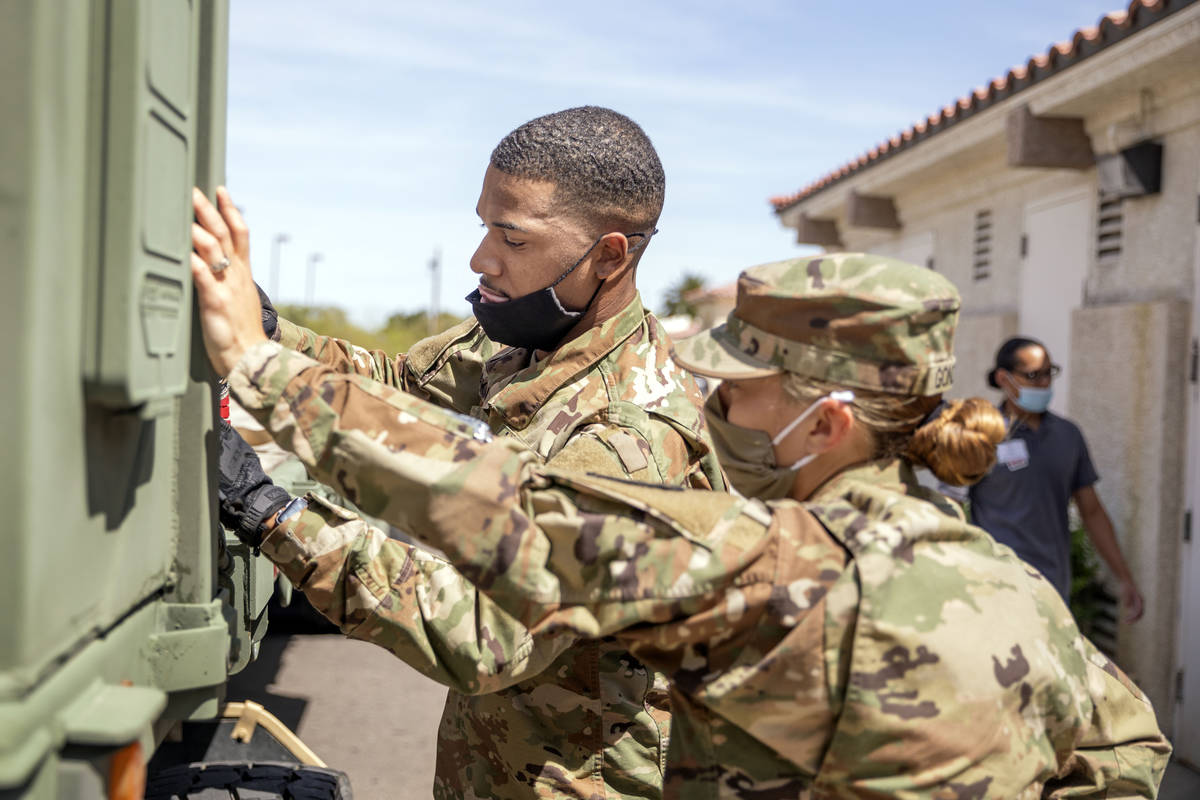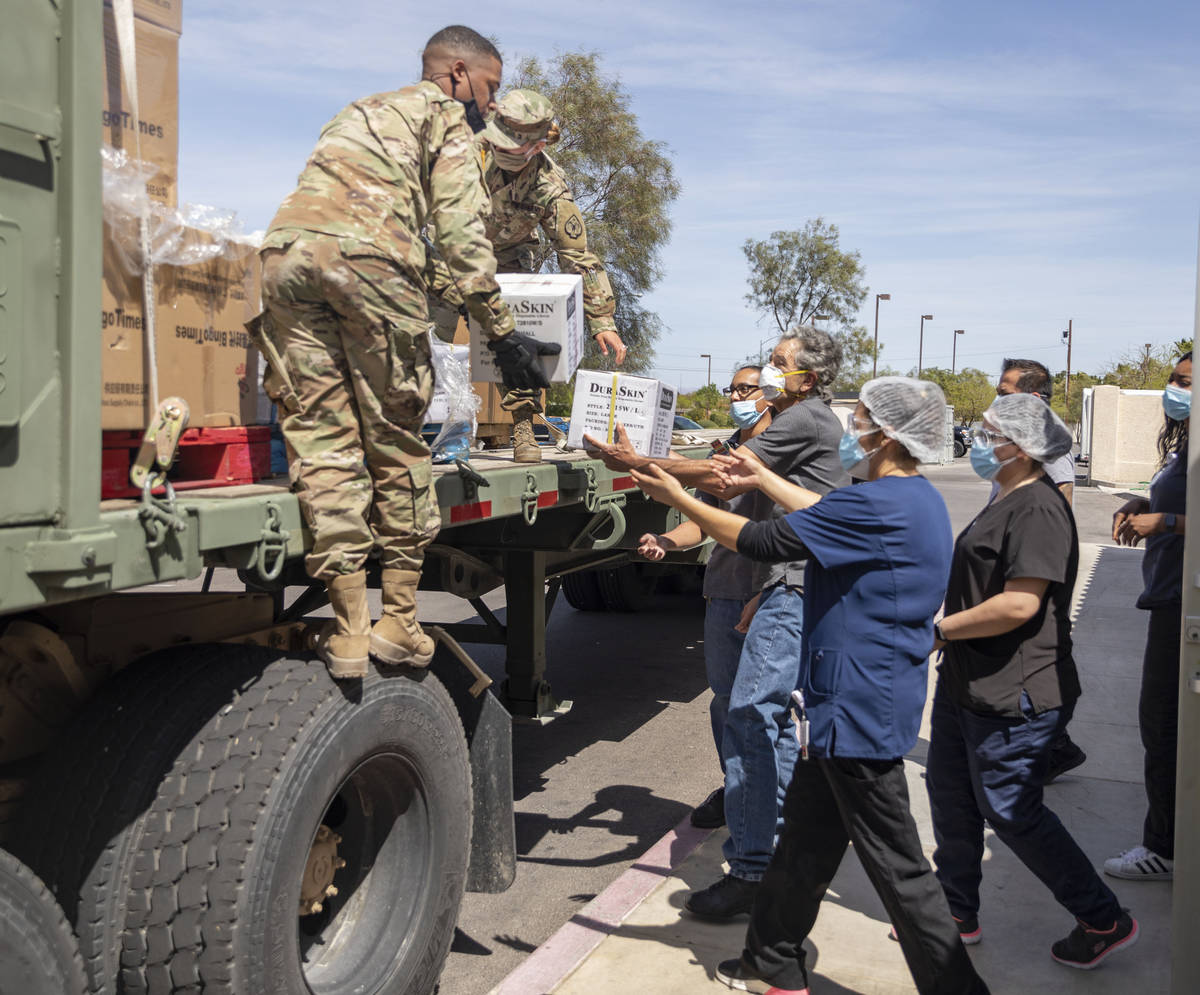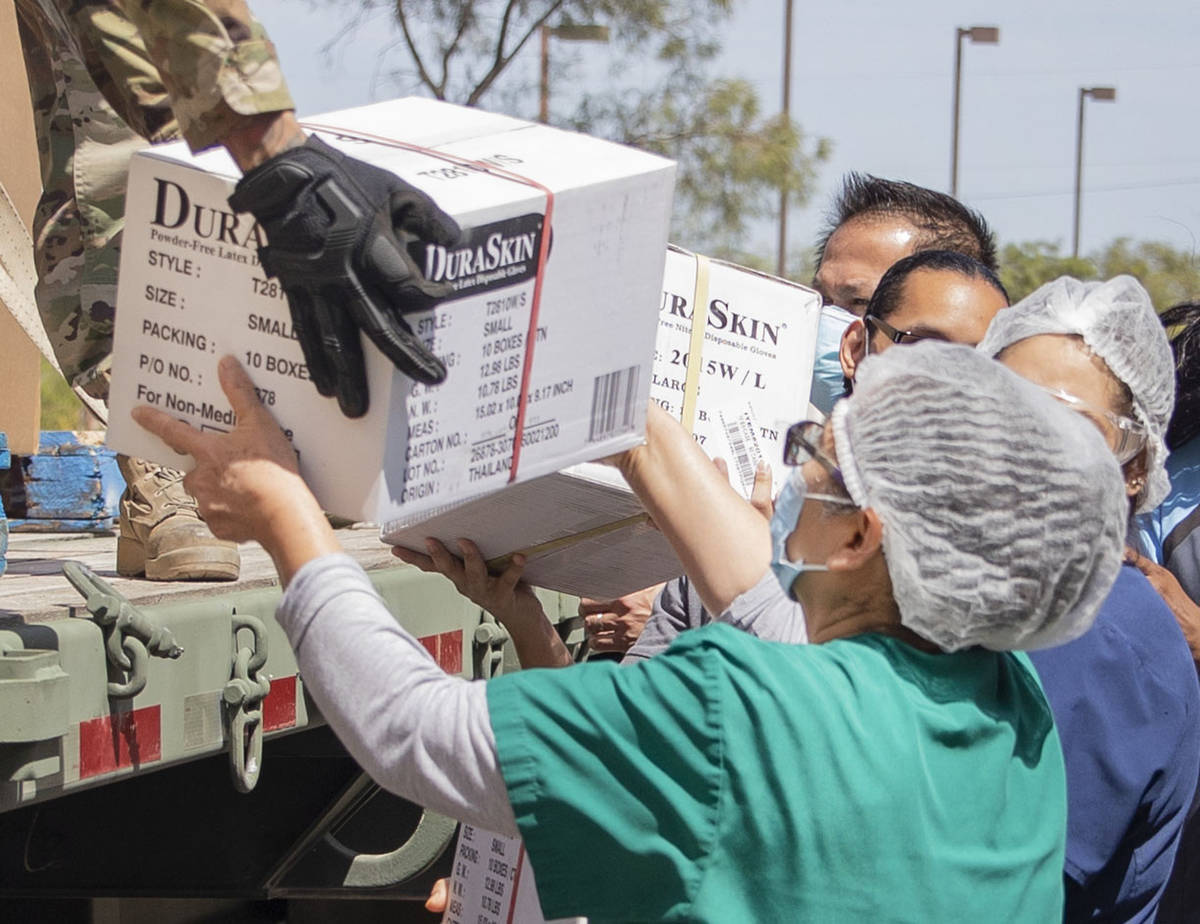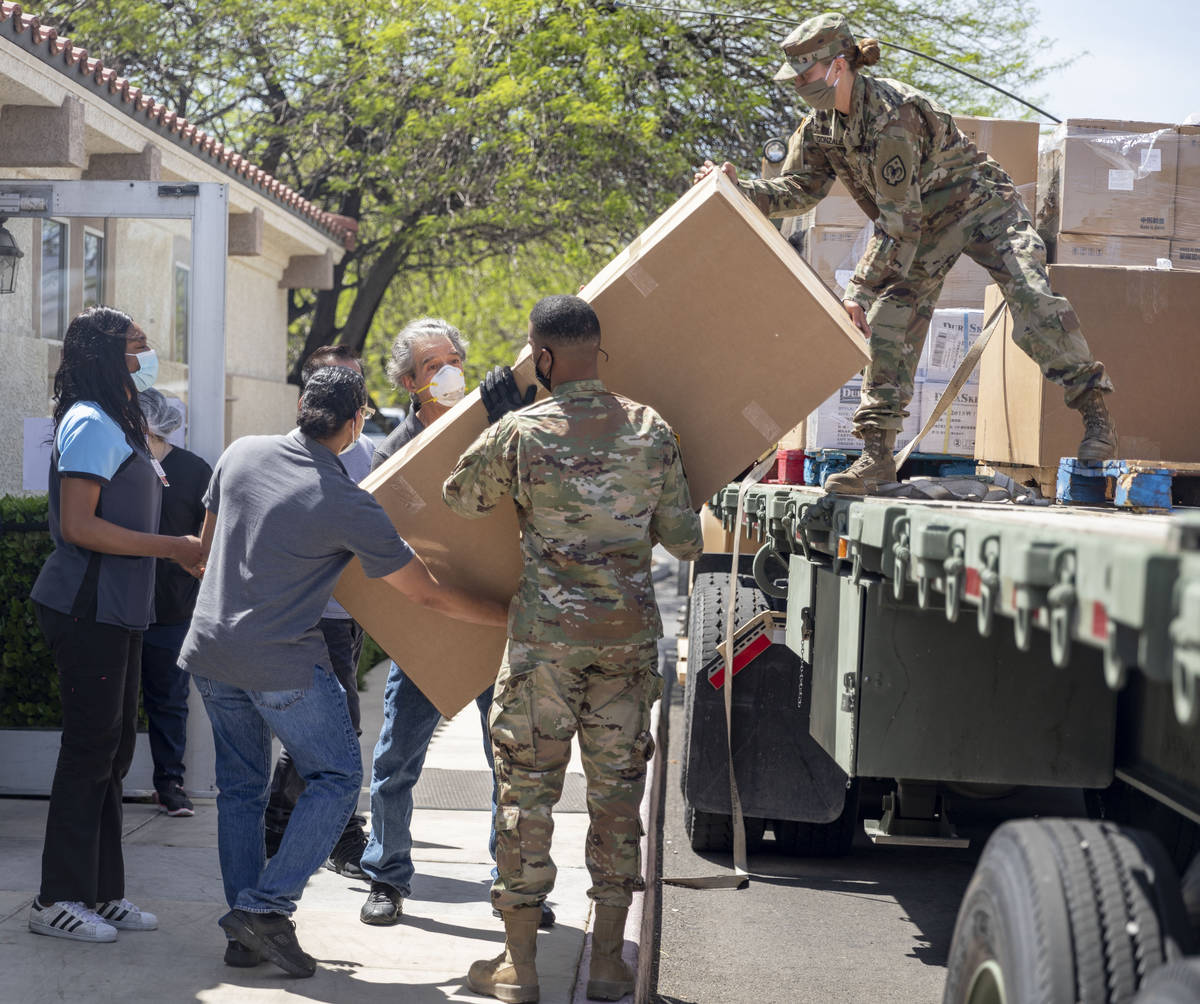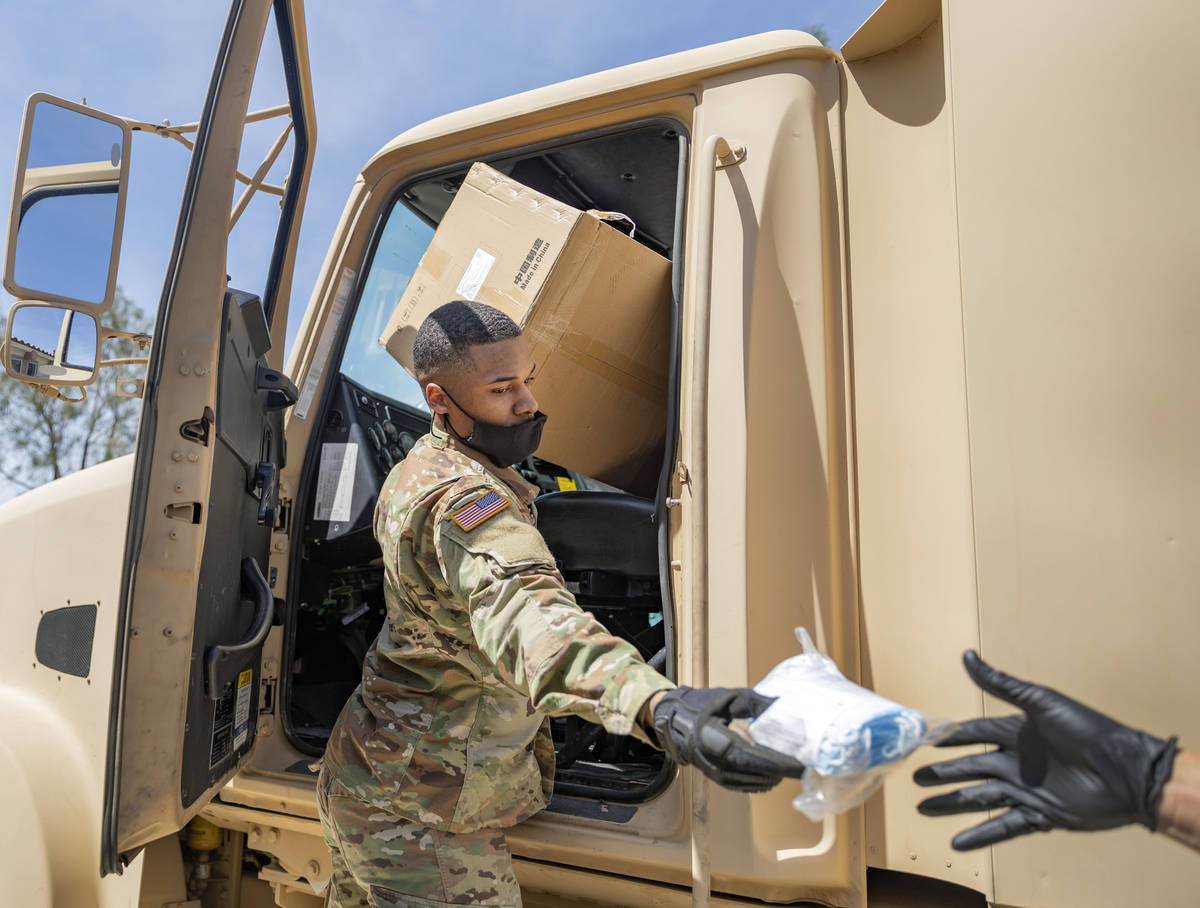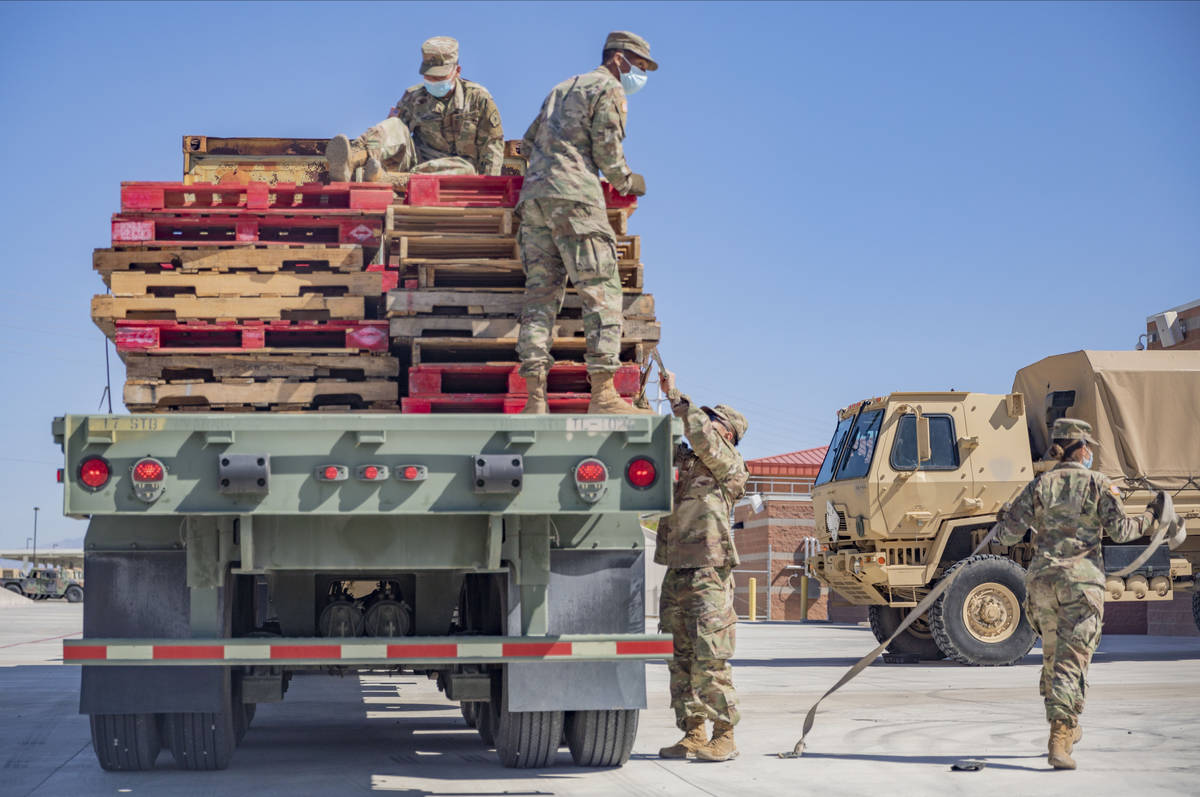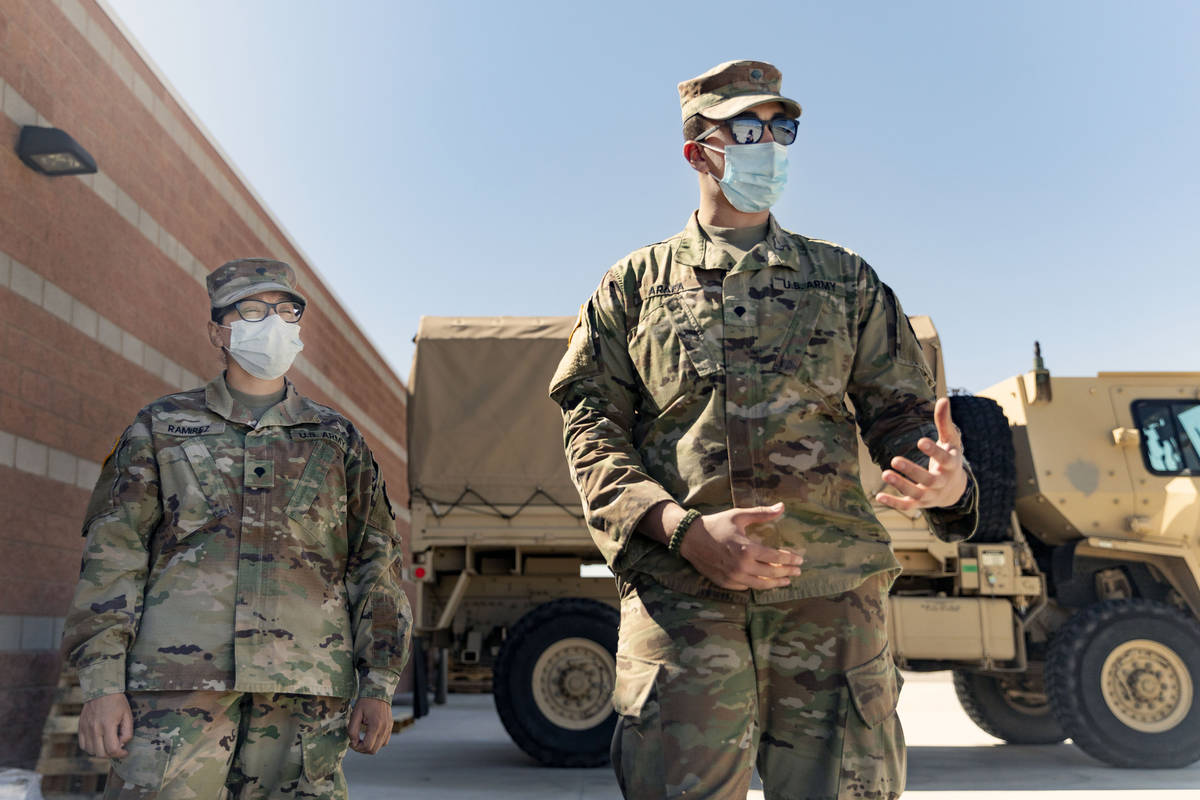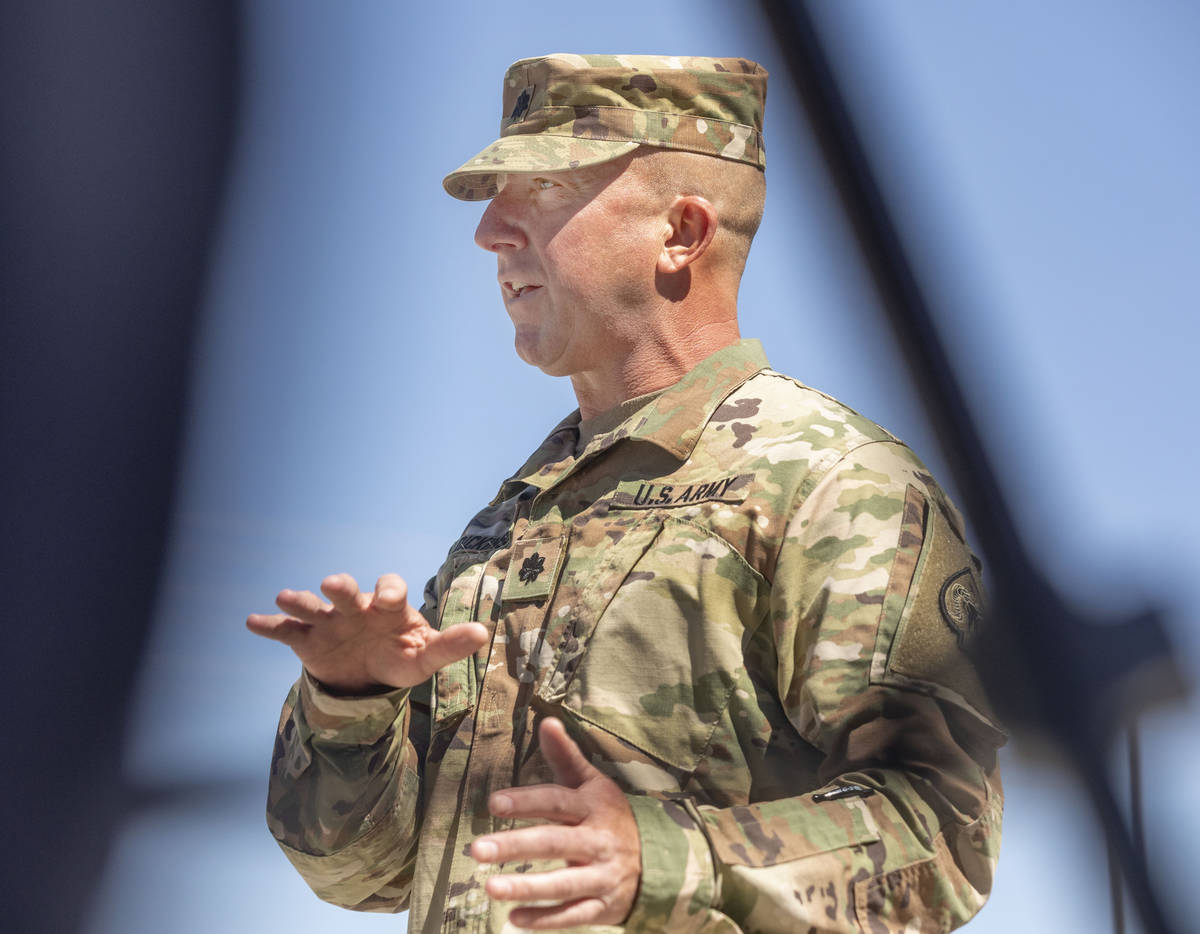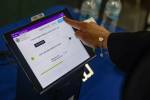COVID-19 cases climb again in Nevada nursing homes as testing lags
Nevada officials identified nursing homes and other long-term-care facilities early in the state’s outbreak as being at particular risk from the spread of the new coronavirus, which preys primarily on the frail and elderly.
In response, Gov. Steve Sisolak deployed the Nevada National Guard in April to combat a surge in COVID-19 cases at nursing homes and other long-term care facilities.
The mission was, according to the governor, “to make sure that they are clean, that they have adequate PPE (personal protective equipment) and that they’ve got sufficient staff on hand.”
As cases and deaths in the homes continued to climb, Nevada Chief Medical Officer Dr. Ihsan Azzam in early May ordered all nursing homes to test their residents and staff by the end of the month.
But that initial burst of resolve has faltered in the months since, with testing left up to the discretion of the long-term care facilities. And that has exposed them to fresh outbreaks that continue to threaten the state’s most vulnerable residents.
The reasons that mass testing — one of the three legs of prevention with contact tracing and aggressive quarantine measures — was not part of the state’s longer-term plan to address the outbreak are unclear.
The governor’s office referred queries about the strategy to the Department of Health and Human Services, which said that a shortage of testing supplies early in the outbreak forced it to focus on the homes with the worst problems. It did not say why the policy was not changed when testing supplies became more widely available.
And while Clark County is planning to administer a “blitz” of 60,000 tests in the Las Vegas Valley over two weeks, there has been no mention of bringing those to nursing homes.
Cases rebound in July
Meanwhile, new flare-ups have appeared on the department’s data dashboard, which shows that clusters of cases in skilled nursing homes slowed in June but picked up again in July.
Horizon Ridge Skilled Nursing and Rehab Center in Clark County, for example, reported its first case early this month. As of Friday, the facility has logged 49 positive cases — 32 residents and 17 employees — and seven residents have died from the disease.
Local officials say they have tried to take up the slack, but accounts differ as to how much of an impact they are making.
To understand how the situation unfolded, the Review-Journal backtracked to Sisolak’s April 21 nursing home statement and checked in with various participants to determine whether testing for COVID-19 was supposed to be part of the equation to prevent further disasters in nursing homes and other long-term facilities.
Lt. Col. Mickey Kirschenbaum, who heads the Nevada National Guard’s public affairs unit, said the citizen-soldiers did some deep cleaning of facilities and tested staff in several nursing homes experiencing outbreaks. But now, strike teams are deployed to communities hard hit by the virus while Guard personnel man test sites like the ones at UNLV and Cashman Field, he said.
The Guard’s mission to expand testing never extended to the state’s nursing homes, Kirschenbaum said.
“We’re not testing any patients, any residents, or anything like that,” he said.

When Azzam announced the testing mandate in May, he said in a statement, “If we identify cases in these facilities, we will be able to implement public health interventions and best practices to prevent the further spread in the affected facilities.”
But the order for testing was a one-time effort, with further testing required only in facilities where there is an “uncontrolled spread of infection,” Health and Human Services spokeswoman Shannon Litz said.
“We have had such a shortage of materials that we have only required it of the facilities that had positive cases, so they would do more facilitywide testing,” said Margot Chappel, deputy administrator and health program manager in the Division of Public and Behavioral Health, which is part of Health and Human Services.
PPE concerns remain
Testing isn’t the only area where momentum has slowed.
The state’s nursing homes remain concerned about the availability of PPE as fall and the flu season draw near, raising concerns about another possible surge. The Guard, which in April delivered nearly a million items of PPE to 22 Southern Nevada facilities, oversees stockpiles of PPE in warehouses where nursing homes can pick it up.
But some home operators interviewed by the Review-Journal said they were not aware that the equipment was available.
Overall, nursing homes remain in an environment where there is “a supply chain that is not yet fully stabilized,” Brett Salmon, president of the Nevada Health Care Association and Nevada Care for Assisted Living trade association, said in a statement.
The situation has drawn the attention of local governments too.
The Southern Nevada Regional Recovery Organization, which submits weekly updates on the local response to the outbreak to the state’s COVID-19 mitigation task force, categorized Clark County’s long-term care facilities and nursing homes as “having issues” in its most recent report.
The group, which includes representatives from the Southern Nevada Health District, Clark County and its municipalities, also said the facilities are in need of “greater oversight and enforcement from the state Department of Health and Human Services.”
Clark County, which chairs the organization, said it is reaching out to facilities that have been identified by the state as having COVID-19 clusters to address the issues.
But at the state’s task force meeting Thursday, officials breezed past the topic, with one member suggesting the matter should be discussed outside the meeting.
Testing situation changing
Though Nevada isn’t requiring testing, that will be changing soon, as the Centers for Medicare & Medicaid Services on Tuesday announced a new rule requiring long-term care facilities across the nation to test staff regularly for COVID-19 or face fines of up to $400 a day or $8,000 per incident.
Under the new rule, expected to take effect after a 60-day comment period, residents also would be offered coronavirus tests if there is an outbreak or if they show any symptoms of the disease.
In the meantime, Nevada is relying on the companies that operate the facilities to adhere to best practices on testing.
Facilities can use the state lab at no cost to conduct tests or pay for private labs, but many have chosen the latter because the state’s lab “turnaround time was too long” to provide useful results, said Annaliese Impink, a spokeswoman for the Lake Mead Health and Rehabilitation facility, which has reported a spate of COVID-19 cases since it implemented resident testing on May 20.
The facility will continue to do weekly testing until there are two weeks with no positive results, she said.
To cut the cost and wait times, some 14,000 facilities nationwide are receiving on-site testing devices from CMS. The antigen-testing machines are designed to produce results in about 15 minutes.
In Nevada, 65 hospitals and long-term care facilities will get the device, according to CMS data.
Awaiting state approval
Two facilities in the state that are among those with the highest case numbers — St. Joseph Transitional Rehabilitation Center and the Heights of Summerlin — received their devices on Aug. 17 and Aug. 10 and are each awaiting inspections from the state.
“At this time, COVID-19 tests are being processed by general lab testing at both facilities, which the state is supporting,” said Lori Mayer, a spokeswoman for the homes’ owner, Genesis Healthcare Inc.
But there is a possible catch: Two of the manufacturers that have received Food and Drug Administration authorization to produce the testing machines — Becton, Dickinson and Co., and Quidel — say their antigen tests detect the virus best in symptomatic patients, calling into question how accurate they will be for those who don’t show signs of the illness.
Azzam, the state’s chief medical officer, said in a statement that while the machines may not be ideal for definitive diagnosis, “the speed (the tests) can be completed helps in acting quickly to slow the spread of COVID-19.”
“These tests, along with clinical judgment by a health care provider, are helpful to quickly implement interventions,” he said.
Since Azzam’s May testing mandate, the state has developed a new approach to try to keep the coronavirus in check in long-term care facilities: creating a consultation team to track cases in both state and federally licensed facilities.
Now that every facility has had an infection control survey, the team of three provides the highest-risk nursing homes with specific infection control practices, both off-site and on, as well as prevention aid through educational materials, meetings and staff training.
They also are monitoring facilities that do not yet have any cases to prevent outbreaks and expanding to try to do a better job of that.
“It’s a small team, so I doubt we’ll get to everyone,” said Leticia Metherell, health program manager for the state Division of Public and Behavioral Health. “But we’re working our best to make the biggest impact that we can with the resources we have.”
Local testing efforts unclear
In the meantime, health officials will continue to conduct infection control surveys in facilities where there have been three or more new cases or one or more confirmed positive residents in a previously COVID-free facility.
Clark County Assistant Manager Kevin Schiller said that the county “plans to get through all the facilities” in the valley for PPE and test kit distribution, adding that the county already has facilitated testing at more than 25 homes.
“It’s a rolling process … and it’s continual,” Schiller said. “The overall dilemma has always been enough resources.”
Schiller said PPE and testing kits are provided directly to facilities via a mobile strike team, which is staffed in part by the Nevada National Guard, the Southern Nevada Health District, ambulance companies and the Clark County Fire Department.
But the health district said the strike team’s PPE distribution ended July 15, and the head of the strike teams at both the Guard and the Clark County Fire Department described it as a one-time mission.
“It was something that happened in the very beginning, the goal was that every nursing home get the initial test. … Then, the nursing homes became autonomous in testing,” said Fire Department Capt. Joe Geeb, who oversees the strike teams, which are now focused on testing in hard-hit communities countywide.
“In the last seven weeks since I’ve been in this position, we haven’t tested in nursing homes,” Geeb said.
Neither the health district nor the county responded when asked to explain the discrepancy.
Contact Briana Erickson at berickson@reviewjournal.com or 702-387-5244. Follow @ByBrianaE on Twitter. Staff writer Michael Scott Davidson contributed to this report.



